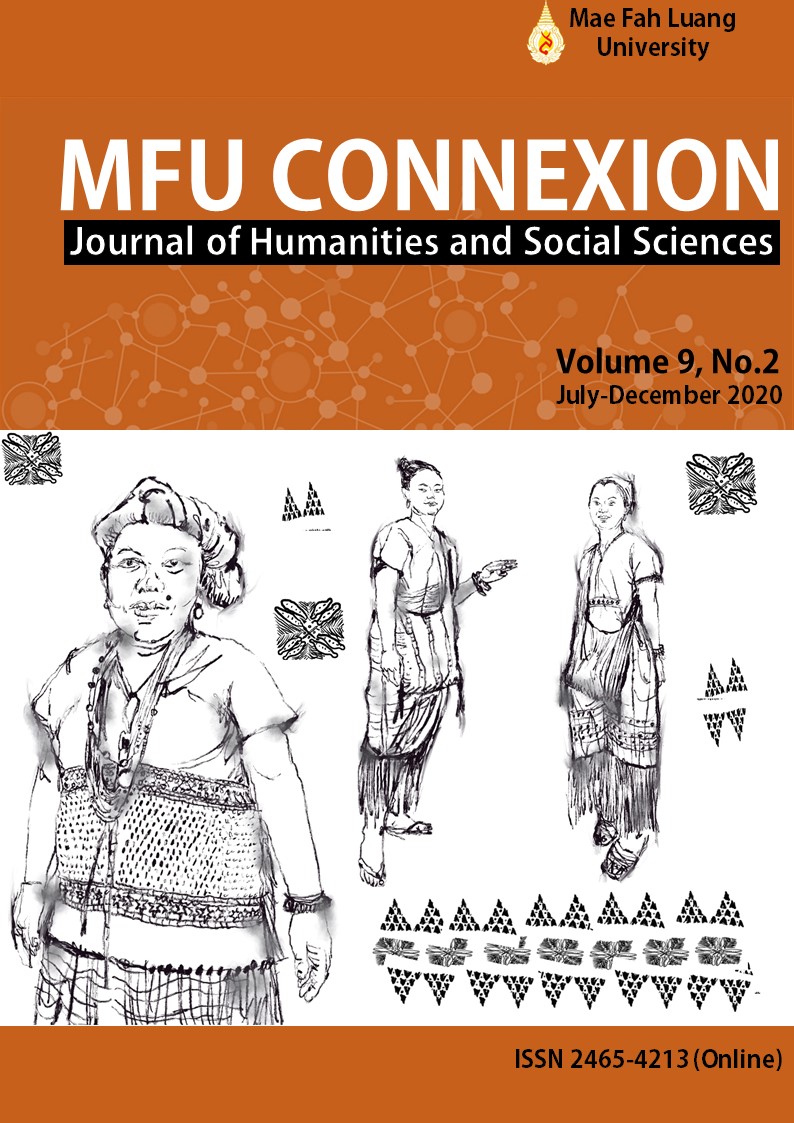Application of By-laws and Policy Tools to Promote the Waste Separation in the Origin: Study on Local Administrative Organizations in Chiang Rai Province
Main Article Content
Abstract
This research analyses the application of local ordinances and policy tools of local administrative organizations in Chiang Rai province for promoting waste separation at sources.
The study found that local administrative organizations encourage people to separate waste at the origin using both legal and policy tools. The main legal tools are local ordinances on solid waste management and separation. Including using the authority to reinforce waste separate policy such as launch the “No Separation No Collect” policy, set the waste collection date depending on types of waste, impose waste fee based on waste separation ability and amount of waste. Regarding policy tools, local government organizations have implemented projects educating public, encouraged domestic waste separation by establishing a waste bank and recycling market and supported special budgets for waste segregation villages. Including making a memorandum of understanding between the government and community leaders. In addition, in many areas other tools are used such as village rules and regulations which are similar to those legal tools, except do not have the legal status as the laws. The result of the study found that local regulations regarding waste separation are essential tools that should be used together with policy tools. Importantly, the redundancy of the laws and the specific conditions of each area should be considered in order to issue any local ordinances. The ordinance should specify types of waste, waste collection schedule, other alternative legal measures and explicit punishment procedures.
Article Details
Copyright
Connexion: Journal of Humanities and Social Sciences has an exclusive right to publish the accepted articles in any form. However, the author retains the following rights:
1. The right to the ownership of the article;
2. The right to use all or part of the article in his/her other works;
3. The right to re-produce the article for personal use or for use in the author’s organisation, in which case the author must obtain permission from Connexion: Journal of Humanities and Social Sciences;
4. The right to make copies of all or part of the work for educational use or for the author’s use in classroom teaching; and
5. The right to include the work (both the preprinted and printed versions) in an institutional repository.
References
Kesawapitak, T. (2012) Commentaries on the law of criminal procedure part 1-2 (Article 1-156) Book 1 (คำอธิบายประมวลกฎหมายวิธีพิจารณาความอาญา ภาค 1-2 (มาตรา 1-156) เล่ม 1), 9th edition, Bangkok: Pol Siam Printing (Thailand) Publishing. (in Thai)
Nakseeharach, D. (2018) Development of legal measure for sustained community waste management: case study on Na-Or Municipal District, Loie Province (การพัฒนามาตรการทางกฎหมายในการจัดการมูลฝอยในชุมชนท้องถิ่นอย่างยั่งยืน: ศึกษากรณีเทศบาลตำบลนาอ้อ จังหวัดเลย), Thammasat Law Journal, vol. 42, no.1, pp. 135-153. (in Thai)
Pankongchune, N. (2018) Legal status of village rules under the Local Government Act, B.E. 2457 (สถานะทางกฎหมายของกฎหมู่บ้านตามพระราชบัญญัติปกครองท้องที่ พ.ศ. 2457), Ganesha Journal, vol. 14, no. 1, pp. 231-248. (in Thai)
Pollution Control Department. (2018a) Annual report 2018 on situation of waste disposal sites in Thailand (รายงานสถานการณ์สถานที่กำจัดขยะมูลฝอยชุมชนของประเทศไทย ประจำปี พ.ศ. 2561), Available: http://infofile.pcd.go.th/Waste/Wst2018.pdf/ [15 January 2020] (in Thai)
Pollution Control Department. (2018b) One year action plan of “Waste-Free Thailand” according to “Pracharath Way” (2016-2017) (แผนปฏิบัติการ “ประเทศไทย ไร้ขยะ” ตามแนวทาง “ประชารัฐ” ระยะ 1 ปี (พ.ศ. 2559 – 2560), Available: http://infofile.pcd.go.th/waste/ThaiPlanswithoutWaste.pdf?CFID=1778682&CFTOKEN=49553099 [15 January 2020] (in Thai)
Pollution Control Department. (2018c) 3R operating manual for community waste management (คู่มือปฏิบัติการ 3ใช้ (3R) เพื่อจัดการขยะชุมชน), Bangkok: Pollution Control Department. (in Thai)
Unroj, P. (2015) Waste bank of San Poh Loei Village (ธนาคารขยะบ้านสันปูเลย), Bangkok; Public Policy Studies Institute Foundation. (in Thai)
Wajanasawas, K. (2019) Commentaries on the Criminal Law: Part 1 Book II (คำอธิบายกฎหมายอาญา ภาค 1 เล่ม 2), 11th edition (as amended), Bangkok: Krung Siam Publishing. (in Thai)


